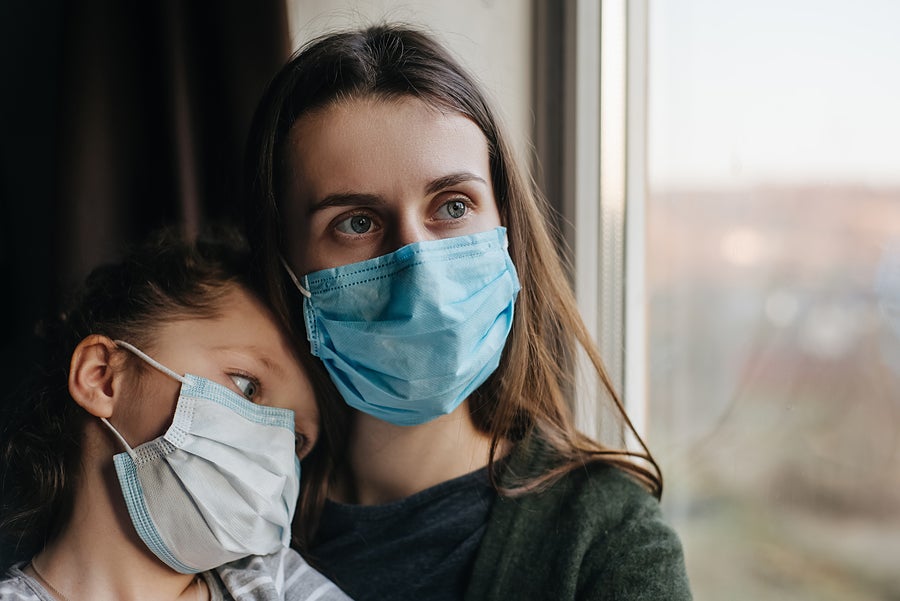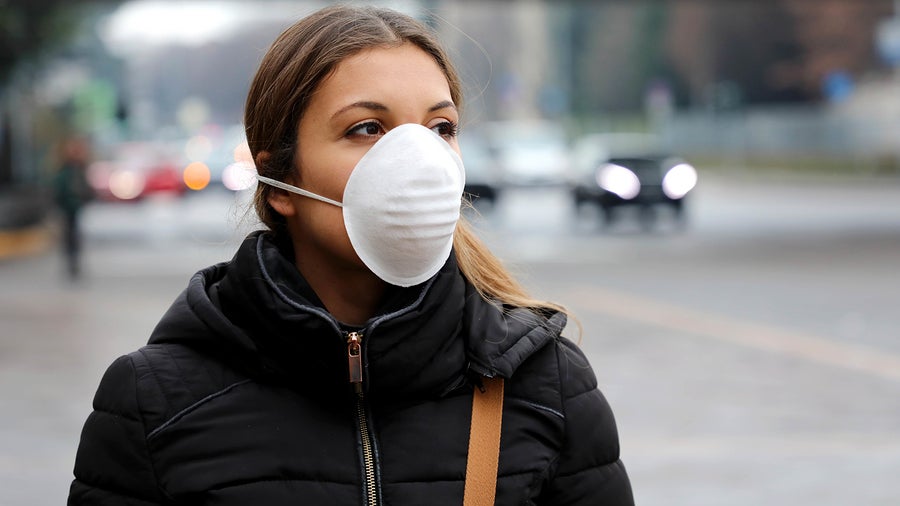Blog
-
Critical Need for Further, Large FMAP Increases to Sustain State Medicaid Programs During Economic Crisis
As part of the Families First COVID-19 legislation, Congress provided a temporary 6.2 percentage point increase in the federal Medicaid matching rate (FMAP) for the duration of the public health emergency. The bipartisan National Governors Association and the National Association of Medicaid Directors are both urging Congress to provide further FMAP increases (totaling at least…
-
Governors and Medicaid Directors Continue to Press for Withdrawal of Damaging Medicaid Fiscal Accountability Rule
As I have previously written, a significant share of the inadequate fiscal relief that Congress has already provided to states facing huge budget shortfalls could be canceled out if the Trump Administration goes ahead and finalizes its highly damaging “Medicaid Fiscal Accountability” rule (known as MFAR). The rule would adversely affect how states finance their…
-
Bipartisan Group of Medicaid Directors, AMA, MACPAC and Stakeholders Issue Urgent Pleas for More Medicaid Help for Safety Net Providers
Those of us who have worked on Medicaid for years have a running joke about Medicaid being the missing “M” in the acronym CMS – which stands for the federal Center for Medicare & Medicaid Services. Medicare has always been the big dog on the block – both in terms of political clout, size and…
-
States Can Prevent Surprise Bills for Patients Seeking Coronavirus Care
The ongoing COVID-19 pandemic raises the stakes in the debate over surprise medical bills. Consumers’ fear of incurring medical bills could lead some to avoid testing or treatment. While new federal laws require insurers to waive cost-sharing for COVID-19 testing and the associated medical visit, that protection does not extend to treatment. Nor does it prevent balance…
-
The Provider Relief Fund: How Well Does it Protect Patients from Surprise Medical Bills for COVID-19 Related Services?
The cost of health care is a critical concern during the current pandemic. People who worry about out-of-pocket costs are more reluctant to seek care. For those with private health insurance, out-of-pocket costs may take the form of deductibles, copayments, or coinsurance. When receiving services from an out-of-network provider, patients may also face balance bills (amounts billed…
-
The Paycheck Protection Program and Healthcare Enhancement Act Fails to Fund the Nation’s Frontline Health Insurer
Today, the Paycheck Protection Program and Health Care Enhancement Act became law.This is the fourth piece of legislation addressing the COVID-19 pandemic and the nation’s economic downturn. It provides additional funding for programs created by the CARES Act, (P.L. 116- 123), including another $380 billion to support small businesses and another $75 billion to help…
-
CMS Releases Telehealth Toolkit with Special Emphasis on Pediatrics
The COVID-19 pandemic has significantly disrupted access to health care as providers scramble to up their game in regard to telehealth. To assist states and stakeholders in advancing the use of telehealth, CMS has released a Medicaid and CHIP Telehealth Toolkit with a special emphasis on pediatrics. The toolkit is intended to help identify state-level…
-
COVID-19 Medicaid Waiver Soup Explained
Over the past month there has been an explosion of Medicaid waiver activity relating to the COVID-19 pandemic. This activity is not to be confused with the implosion of the Medicaid section 1115 work requirements waivers, which would undermine coverage. Instead, the COVID-related waivers are designed to help state Medicaid programs respond to the pandemic,…
-
Getting MAGI Right: Do COVID-19 Stimulus Payments and Extra Unemployment Count toward Medicaid Eligibility?
The most popular blogs I’ve ever written were part of a 2015 series about Getting MAGI right. At the time, MAGI was a little understood acronym for Modified Adjusted Gross Income, which changed the way income and household size is counted for Medicaid and CHIP eligibility for children, pregnant women, parents and expansion adults. As…
-
Uninsured and Unemployed? Medicaid and CHIP Provide Lifelines to Families in Need
In these tough times, when so many people have lost their jobs and and their health insurance, Medicaid and the Children’s Health Insurance Program (CHIP) are lifelines families can turn to for help covering the cost of health care. Medicaid and CHIP provide free or low-cost health coverage for children and pregnant women with low…
-
Now is the Time to Remove CHIP Waiting Periods and Welcome Kids into Coverage
While maintenance of effort (MOE) provisions in the Families First Coronavirus Response Act and long-standing MOE requirements for children prevent states from implementing any new eligibility or enrollment barriers, states should also be taking steps to remove existing barriers to coverage, including CHIP waiting periods. Before the Affordable Care Act’s (ACA) coverage expansions were implemented…
-
March Research Round Up: What We’re Reading
This blog was originally posted on the Georgetown Center on Health Insurance Reforms’ CHIRBlog. This March, we had to reconcile the anniversary of a landmark health law with the anxiety and grief caused by the growing novel coronavirus (COVID-19) pandemic. As we celebrate the 10th year of the Affordable Care Act (ACA), we also look to researchers to help…
-
COVID-19 Response: States That Run Their Own ACA Marketplace Are Better Positioned to Help Consumers Get Covered
This blog was originally posted on the Georgetown Center on Health Insurance Reforms’ CHIRBlog. As COVID-19 cases climb, social distancing – the best tool we have to bring the virus to heel – has wrought an unprecedented loss of jobs, income, and health coverage. Over the coming months, the uninsured rate is expected to skyrocket. In the…
-
Approved Disaster Relief SPAs Reduce Burdens on Beneficiaries
CMS has begun approving states’ disaster relief State Plan Amendments in response to the COVID-19 crisis. As my colleague Tricia Brooks recently described, these SPAs allow states to make temporary changes to eligibility, enrollment, and cost-sharing policies among others flexibilities. It is important to note that the changes requested, and subsequently approved, in the disaster…
-
Pandemic Induced Pragmatism: The State of Medicaid Waiver Policy
Amongst other ways in which life has dramatically changed in the last month, Section 1115 Medicaid waiver terrain has experienced a tectonic shift. For those of us who have been responding to massive numbers of public comment periods over the past two-plus years, only one waiver opened for public comment that we are commenting on…
-
Medicaid and CHIP Eligibility Verification Flexibilities Help States Keep up with Increased Application Volume due to COVID-19
As more and more Americans file unemployment claims, we can expect an increase in Medicaid applications. This increased demand comes at a time when Medicaid eligibility enterprises are challenged with transitioning eligibility workers to telework and may be experiencing workforce shortages due to worker illness or family caretaking responsibilities resulting from the COVID-19 pandemic. But…
-
Recent Medicaid Expansion Activity in Eight States during the COVID-19 Crisis
As states respond to the COVID-19 crisis, those that have yet to expand Medicaid are facing rising calls to reverse their opposition and quickly provide affordable health care to millions of residents. The oncoming double hit to states of rising numbers of residents needing advanced, expensive health care coupled with truly staggering job losses –…
-
States Should Accept all Federal Funding Already on Table to Fill as Many Health Coverage Gaps as Possible While Pressing for More
States are under tremendous pressure to continue to provide essential services even as resources dwindle, underscoring the importance of the 6.2 percentage point increase in the federal medical assistance percentage (FMAP) in the Families First Coronavirus Response legislation Congress passed last month. Unfortunately, the health and economic consequences of this pandemic necessitate an even bolder…
-
Solution to Maternal Health Crisis Must Center on Medicaid
Earlier this month, CCF submitted comments to the Senate Finance Committee with recommendations to reduce maternal mortality and morbidity and help mothers and babies thrive together. At the heart of our comments was this: Medicaid must be at the center of any efforts to solve to this crisis. Here’s why. Medicaid paid for nearly half…
-
COVID-19 and Immigrant Health
Now, more than ever, it’s critical that everyone has access to health coverage. The only way to effectively respond to a pandemic is to make sure that everyone can get the screening and treatment they need. Unfortunately, even with three new laws to address the COVID-19 public health emergency, there are still gaps in coverage,…




















